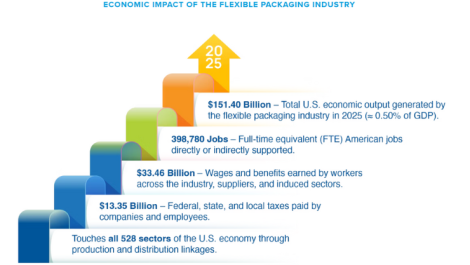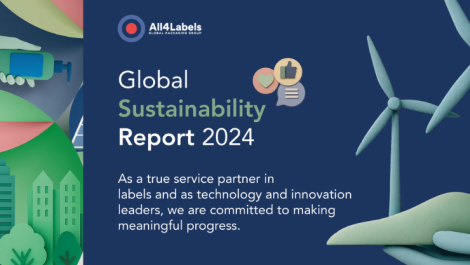The UK’s Department for Environment, Food & Rural Affairs (Defra) has introduced a recyclability assessment methodology (RAM) for liable producers who supply household packaging, effective as of 1 January 2025. Under the new regulations, these producers must assess the recyclability of household packaging and report the results of the assessment to the environmental regulator.
Designed with a focus on evaluating recyclability, encompassing the full range of requirements across the packaging end-of-life stages, the RAM is said to ensure that packaging can be recycled and transformed into new product applications, supporting a circular packaging economy.

Steve Gough, CEO at Valpak
The idea is that materials used in packaging are separated into three different categories: red, amber or green. Red packaging means the material has specifications that make it difficult to recycle at scale; amber packaging may experience challenges during collection and sortation and requires specialist infrastructure for reprocessing; green packaging is widely recyclable in the current UK infrastructure.
Commenting on the RAM, Steve Gough, CEO at Valpak – an environmental compliance scheme in the UK – described the announcement as a key component in the move towards implementation of Extended Producer Responsibility for Packaging (pEPR).
He opined, ‘This announcement gives packaging producers the clarity needed to plan ahead. Armed with a comprehensive definition of green and red – recyclable and non-recyclable – materials, producers are now able to focus on collating the necessary data to meet their obligation.’
Additionally, UK-based OPRL, an organisation that provides recycling labels on packaging to help consumers recycle correctly, has embraced the RAM with interim managing director Jude Allan describing it as valuable clarification both for businesses and for labelling.

Jude Allan, OPRL interim managing director
She said, ‘The RAM provides a standard guide on the recyclability of different packaging materials and formats. The methodology will produce a red, amber or green output, which relates to the ease of recycling at scale. This will help businesses to make effective choices around design, as well as supporting consistent messaging to householders across the UK.’
Adding that clear messaging on recycling is crucial, she said OPRL research showcased that most consumers turn to packaging for instructions on recycling, so consistent messaging is crucial when it comes to communicating recycling information. Ms Allen added that companies know that improving recyclability is a fundamental step towards reducing pEPR costs. But, without insight into current and future choices, many are struggling. This is something that the RAM will address, she suggested.






